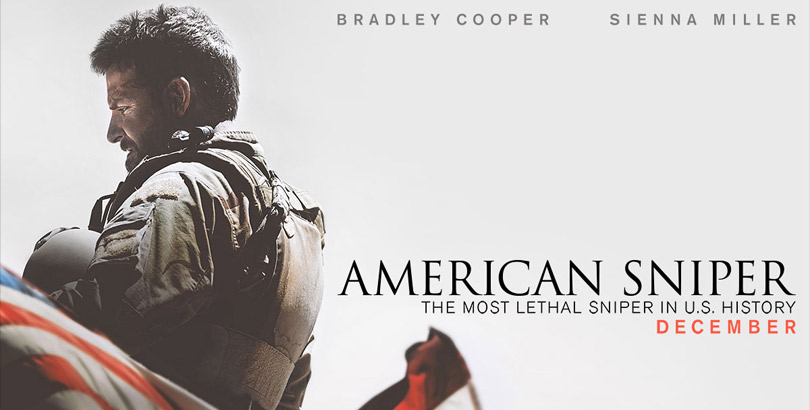The scope darts furtively across the desolate city, finally coming to rest on a woman her child. The radio sputters to life, blasting out panicked queries—to shoot or not to shoot? The sniper holds his fire, holding his breath. Then, a glimpse of an explosive. He takes aim, then shoots, then the screen goes out to darkness. “American Sniper” is not the first film of the 20th century depicting modern wars in Afghanistan and Iraq, but it certainly is gripping. Released in December 2014, “American Sniper” is a film adaptation that isn’t all guts and glory.
Not many films nowadays can boast the same level of thrill as “American Sniper.” In Hollywood, war is typically filtered, even glorified. The protagonist is the hero, streaked in dirt and sweat and valiantly saving American lives. His comrades are rank-and-file soldiers who seem to be expendable. Anyone else… well, anyone else is a faceless enemy who fights for everything democracy and capitalism stands for. The autobiography Chris Kyle wrote, however, took the complete opposite approach, instead portraying American soldiers as nothing more than ordinary men—men with families and girlfriends and homes. The escapades of American soldiers were imprinted in the pages of Kyle’s book, making it a magnificently thrilling read.
Some critics expected “American Sniper” to be corrupted by Hollywood and distorted from its original scope. But the film exceeded expectations by delivering some of the more compelling moments in the story: moments describing Kyle’s hesitation for committing some of the morally questionable deeds. That was war, according to the autobiography, and some of that thought-provoking dilemma was transferred to the film. Bradley Cooper does an exceptionally brilliant job of portraying Kyle in this regard—he impressively mimics every facial expressions of confusion, shock, and determination. In fact, it’s so good that Cooper’s voice in the film is undistinguishable when compared to that of the real American sniper in his interviews. Even the exact smile fits.
The film isn’t without its faults, of course. Just as there was criticism of Kyle’s autobiography when it was published, there was criticism of the film. Specifically, critics took offense at some of the blunt comments Kyle made in his story. It doesn’t sound like the words of an American hero, and it doesn’t sound at all like the words of a man tentative of his actions and haunted by a guilty conscience. This, coupled with the fact that Kyle is now being accused of unwarranted violence against civilians and aggressive mannerisms, leaves a dent in an otherwise well-constructed story.
Was Chris Kyle a boastful man reveling in the glory of war? Was he actually a violent, unreasonable man on the home front? Unfortunately, these questions will never be answered, as Kyle was killed in 2013 by a fellow war veteran. Ironically, Kyle’s offered hand of assistance was met with violence possibly resulting from post-traumatic stress disorder. The film ends with simple text outlining the basics—Chris Kyle was killed helping a fellow soldier. As such, the moral value of the film and autobiography is now in question. If anything, however, “American Sniper” was an excellent portrayal of the gritty, unpleasant nature of war.
Yet it doesn’t help that “American Sniper” was directed by Clint Eastwood, a well-known Republican and proponent of American military might. The words “jingoistic” and “conservative” may be understatements in describing this director. And, naturally, the controversy of “American Sniper” has made it a political point of contention. Such judgment may be too hasty, though, because I for one do not see the military propaganda supposedly present in “American Sniper.” It isn’t propaganda: the movie didn’t make me want to pick up a rifle and head out to defend liberty and democracy from the forces of evil. It’s just realistic.

